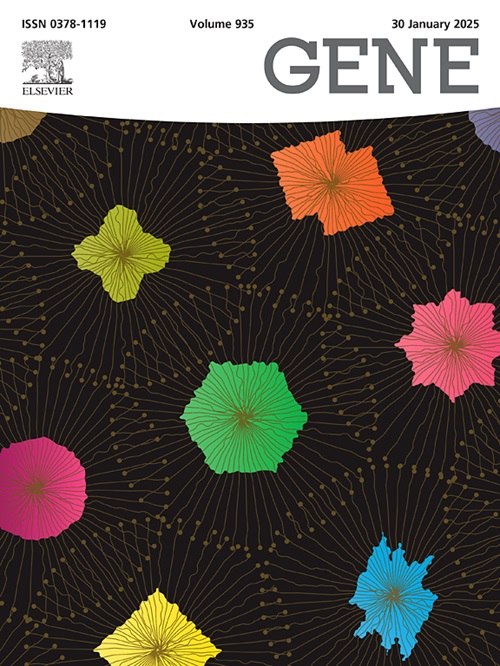AhFAD3-A01 enhances α-linolenic acid content in Arabidopsis and peanut
IF 2.6
3区 生物学
Q2 GENETICS & HEREDITY
引用次数: 0
Abstract
Alpha-linolenic acid (ALA, C18:3) is an essential fatty acid integral to human growth and development. Despite its significance, the ALA content in peanut seeds-a major global oilseed crop-is notably low. This study employed bioinformatics analysis, tissue expression, and promoter function evaluations to investigate AhFAD3, which encodes the microsomal omega-3 fatty acid desaturase that is directly responsible for ALA accumulation through converting linoleic acid (LA) to ALA. We identified the active AhFAD3 gene, AhFAD3-A01, with the functional protein encoded by AhFAD3-A01 localized in the endoplasmic reticulum (ER) and found to be pivotal in ALA synthesis in seeds. The low expression of AhFAD3 genes during the late stages of seed development, coupled with the specific activation by only AhFAD3-A01 and AhFAD3-B01 promoters in seeds, results in the low ALA levels in mature peanut seeds. To enhance ALA content, the constitutive promoter CaMV35S and the seed-specific promoter PAhWRI1 were utilized to overexpress AhFAD3-A01 in Arabidopsis and peanut. While the expression level of AhFAD3-A01 in PAhWRI1::AhFAD3-A01 transgenic Arabidopsis remained unchanged, it significantly increased under the CaMV35S::AhFAD3-A01 configuration, leading to an over a 40 % increase in ALA content of in T4 generation seeds, indicating that PAhWRI1 was unable to drive AhFAD3 overexpression in Arabidopsis. Similarly, the overexpression of AhFAD3-A01 using both promoters in peanuts resulted in enhanced expression and an increase in ALA content from 15.18 % to 30.65 % in CaMV35S::AhFAD3-A01 T1 generation seeds and from 11.23 % to 25.49 % in PAhWRI1::AhFAD3-A01 seeds. These results highlight the critical role of AhFAD3-A01 ALA synthesis in peanut seeds and provide a solid foundation for developing peanut varieties with elevated ALA content.
求助全文
约1分钟内获得全文
求助全文
来源期刊

Gene
生物-遗传学
CiteScore
6.10
自引率
2.90%
发文量
718
审稿时长
42 days
期刊介绍:
Gene publishes papers that focus on the regulation, expression, function and evolution of genes in all biological contexts, including all prokaryotic and eukaryotic organisms, as well as viruses.
 求助内容:
求助内容: 应助结果提醒方式:
应助结果提醒方式:


